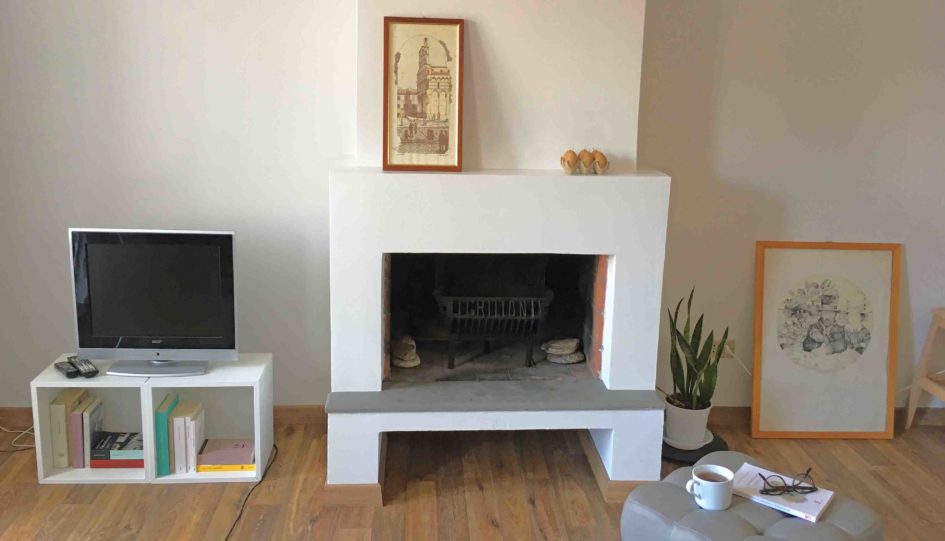We’ve just settled into our seventh home in eleven months. This one’s in an old building in the very lovely city of Lucca, Tuscany and it’s great. The apartment has been beautifully renovated and it actually feels a bit like our own home in Brisbane, so we’re very comfortable.
When we first began planning our Italian adventure, Greg and I thought we might try to buy a place over here. (A small flat above a bakery featured high on the ‘wouldn’t it be great if …’ list). But even before we left Australia we knew we’d want more flexibility. We intended to move around, live in different parts of the country, experience as much of Italy as we could.
And that’s what we’re doing. We usually spend between one and three months in a location before moving on to somewhere else. Sometimes we plan ahead, often we don’t. And as to how we find accommodation, it varies; we’ve used Airbnb, a letting agent and, very fortunately, we’ve also been able to rent from friends.
These days if we’re researching properties, we start with a short list of ‘must haves’ – workable kitchen (we do a lot of cooking), bathroom with space to put stuff (constantly digging around in a toiletries bag is no fun) and plenty of natural light. Other than that, we’re pretty flexible. Because each place has its own particular quirks, we’ve learned a few things along the way too. Like this …
• Every door lock here seems to be tricky, so Greg has become an expert at entering premises (luckily he’s not had to attempt the ‘breaking’ bit yet)
• It’s unusual to find a toaster in an Italian kitchen, and often there’s no kettle either (why would anyone need a kettle when there’s a perfectly good coffee pot available?)
• It is possible to whip up a month of meals with nothing but a two-burner stove top
• The operation of taps is regularly inconsistent between sinks and shower (and working out which is which – hot or cold, left or right – is achieved only by trial and error)
• Finding the short cycle on the (annoyingly inevitable front-loader) washing machine usually remains an unsolved mystery
• Ladders make excellent clothes lines (no kettle to make tea, but ladders seem to be ubiquitous in Italian homes), and
• Disposing of the rubbish is best done by following the neighbours’ lead (beside the front door, beside someone else’s front door, in the overflowing industrial bin up the street, or via key-card access into the well-organised, strictly-separated recycling bins near the piazza – really, how rubbish collection is managed here is a story in itself).
We seem to have relocating down to a fine art now. It doesn’t take us long to get organised and usually within a day or so in a new place we’ve settled in, checked out the lay of the land and are feeling very much ‘at home’.

07/22/2018 at 5:32 am
Hi Greg and Gayle,
Therese and I lived a week in Lucca last year…we stayed on a biodynamic farm to the west of Lucca which was fabulous. It is apparently law in Italy not to have electrical equipment (jugs , toasters etc) in hotels…maybe that translates to ABnBs etc. Your trip sounds just amazing and giving us some inspiration
07/12/2018 at 12:37 am
If a lack of kettle can’t convert you to coffee, Mama, nothing can! Hehe
07/02/2018 at 4:20 am
Looks very comfy! Another amazing adventure in Lucca! I love that place!! Lots of Puccini hey! Did you get to Vico Pancellorum not far from Bacci de Lucca! About an hour from Lucca! Have a look if you get a chance! That is where we stayed for a holiday such beautiful countryside!
07/02/2018 at 5:01 pm
We haven’t made it to Vico Pancellorum, Lyn, but it does look beautiful. What a lovely spot to relax and enjoy the countryside!
06/26/2018 at 1:49 am
Looks very comfy Gayle 🙂 Did you bring a camera with you?
06/26/2018 at 4:51 pm
Haha! :)x
06/20/2018 at 6:19 pm
How about the villa you were thinking of buying over here? 😉
I agree with the crazy taps, but I must say: front loader washing machines are the best! I missed them so much in Australia 😉
Miss you two!
06/21/2018 at 9:28 am
We’ve decided on the one beside the lake. You know, the huge villa that rotates to follow the sun. With the pool. And the yacht. But we’ve told them they’ll have to get rid of that front loader washing machine before we move in! Ahah! We miss you too! 🙂
06/18/2018 at 1:04 am
Any requirements for a bidet? We found them everywhere in Italy and frankly serve no purpose except for maybe washing your feet. They take up too much room in an already small bathroom that could use space for a bigger shower. We spent two days in Lucca and loved it. We did our own version of the Giro around the old walls of the town and saw the 1000 Migli vintage car race. I also loved the shopping and Aperol Spritz.
06/19/2018 at 6:59 pm
You’ll certainly find one of those in every home, Nat! Sounds like you had a wonderful time in Italy. And great that you enjoyed Lucca. We really like it too.